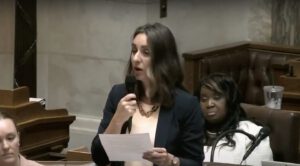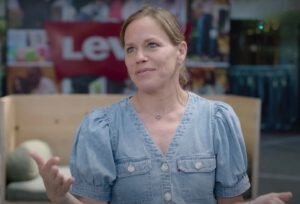School choice is good for minority students, says advocate whose life was changed by it
When Denisha Allen talks about the powerful impact school choice programs can have on black students, she speaks from experience.
Enrolled in her local public elementary school, Allen failed 3rd…

When Denisha Allen talks about the powerful impact school choice programs can have on black students, she speaks from experience.
Enrolled in her local public elementary school, Allen failed 3rd grade twice. She couldn’t read, was behind in math and hated school. Then, during her 6th grade year, she had the opportunity to attend a private school through Florida’s “Step Up for Students” scholarship.
“I went from Ds and Fs to As and Bs,” said Allen. “The change was immediate. The individual attention I received from my teachers helped me make that progress.”
The first in her family to graduate high school, Allen went on to graduate from college and earn a master’s degree in social work.
“Now,” she says, “I advocate because of the difference school choice made in my life.”
Allen is a senior fellow at the American Federation for Children (AFC), a leading school choice advocacy organization. She is also the founder of Black Minds Matter (BMM), a project of the AFC that launched in 2020.
“The Black Minds Matter mission is to proclaim school choice as an amazing option in black and brown communities, and promote educational freedom for our children,” Allen told The Lion.
“During the summer of 2020, after George Floyd was murdered, I became frustrated because there was no attention given to education and school choice as an option for students.
“We were ‘canceling’ things in efforts to make an equal and just society, but education was not being touched on. Education is near and dear to me because of the difference it made in my own experience.”
Allen channeled her frustrations into the work of her organization. Committed to what she describes as a new way of talking about school choice, she fights against the false perception that school choice is a “white, conservative” issue.
“[W]e talk about and feature black school founders, most of whom are former public school teachers, and most of whom vote Democrat,” says Allen. “We amplify their voices and what they are doing for educational freedom. They are creating new environments for our children.”
In a recent report, Allen’s organization outlined the state of education for minority students:
- Black student achievement across America continues to lag;
- Black residents are more likely to have negative views of neighborhood schools;
- Black parents are particularly supportive of school choice;
- The extent to which black parents, educators and communities have embraced choice in Florida has been little noticed by the press, policymakers and the general public, both in Florida and beyond.
“School choice helps black kids because our public school system now is based on where you live – so it’s a class issue,” said Allen. “Most of the time, we are talking about lower income students, who are often minority students. So it becomes both a race and class issue.
“We need to give students freedom, and allow parents to use money that is rightfully theirs to select the best school for their child’s individual needs and interests” – freedom like Allen had as a young 6th grader.
“It wasn’t luck but a defining opportunity that pulled me from the failing grasp of a district school,” she recently said.



